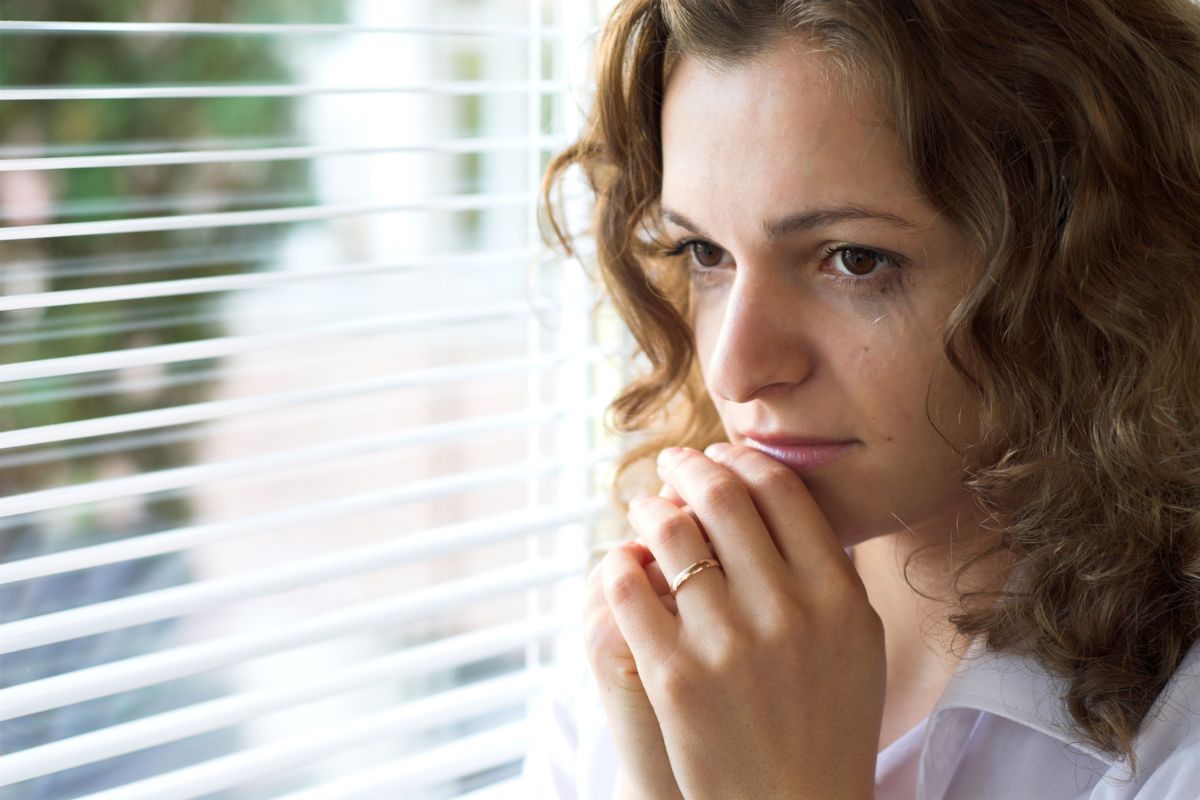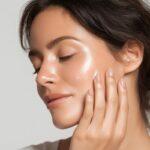Natural Ways to Reduce Anxiety Without Medication

Anxiety disorders are among the most common mental‑health issues worldwide. Although medications are often used, many people look for non‑pharmacological strategies to manage anxiety or complement medical treatment. This article summarizes evidence‑based lifestyle changes, relaxation methods and natural supplements shown to reduce anxiety. It draws on recent research—some published as late as 2024—to provide practical recommendations.
Diet and Nutrition
Reduce caffeine and sugar intake
High doses of caffeine stimulate the central nervous system by blocking adenosine receptors and increasing neurotransmitters like dopamine and norepinephrine. A 2024 meta‑analysis found that low caffeine consumption moderately increased anxiety (standardized mean difference (SMD) = 0.61), while doses above 400 mg/day (roughly four cups of coffee) produced a large increase (SMD = 2.86). Another study showed that people following a dietary pattern high in saturated fat and added sugar had significantly higher anxiety scores than those following lacto‑fish‑vegetarian or anti‑inflammatory diets. Reducing caffeine, added sugars and refined carbohydrates, and limiting alcohol may therefore help mitigate anxiety. Keep a food diary to identify foods that trigger symptoms.
Follow a balanced diet rich in fruits, vegetables and fish
Adopting healthier dietary patterns may protect against anxiety. Diets rich in fruits, vegetables, whole grains, legumes, nuts, and fish provide vitamins, minerals, fibre and anti‑inflammatory compounds that may stabilize mood. In the ATTICA study, a dietary pattern characterized by saturated fats and added sugars was associated with higher anxiety scores even after adjusting for age, sex and other lifestyle factors. By contrast, Mediterranean‑style diets rich in olive oil, fish and plant foods were not linked to increased anxiety. Eating regular meals to prevent blood‑sugar dips, drinking enough water and limiting processed foods can promote mental well‑being.
Physical Activity
Exercise produces endorphins—natural pain‑killing and mood‑boosting chemicals. Cardiovascular activities such as brisk walking, swimming or cycling for 30 minutes most days can reduce anxiety, and even a 10‑minute brisk walk may improve mood and coping ability. A systematic review of 15 clinical trials found that aerobic exercise significantly reduced anxiety compared with wait‑list controls, with a moderate effect size of –0.41. Higher‑intensity exercise yielded larger reductions than low‑intensity exercise. Exercise also improves sleep, reduces inflammation and increases self‑esteem and self‑efficacy. Aim for at least 150 minutes of moderate‑intensity aerobic activity per week and include muscle‑strengthening activities twice a week.
Mindfulness, Meditation and Relaxation Techniques
Mindfulness meditation
Mindfulness involves paying non‑judgmental attention to the present moment. A systematic review of randomized controlled trials found that mindfulness‑based interventions significantly improved sleep quality (SMD ≈ 0.33 post‑intervention and 0.54 at follow‑up) compared with nonspecific active controls. Mindfulness meditation reduced cognitive processes that interfere with sleep and altered sleep‑related brain connectivity. Furthermore, a randomized clinical trial compared mindfulness‑based stress reduction (MBSR) to the antidepressant escitalopram for people with anxiety disorders. After eight weeks, MBSR produced a reduction in anxiety severity similar to that of escitalopram and had far fewer adverse events. Mindfulness training fosters self‑awareness and resilience, improves sleep quality and cognitive function, and reduces stress and depressive symptoms.
Relaxation techniques
Harvard Health describes several relaxation methods that evoke the body’s relaxation response:
-
Deep breathing (breath focus): Slow diaphragmatic breathing helps disengage from distracting thoughts and lowers heart rate.
-
Body scan and progressive muscle relaxation: Focus on each muscle group from toes to head, tightening and releasing muscles to notice tension and promote relaxation.
-
Guided imagery: Visualize calming scenes to replace anxious images.
-
Yoga, tai chi and qigong: These practices combine rhythmic breathing, gentle movement and focus.
-
Mindfulness meditation: Focusing on the breath and present sensations helps quiet ruminative thoughts.
-
Repetitive prayer for those with spiritual beliefs.
Practicing these techniques for at least 20 minutes daily can reduce stress and anxiety. A meta‑analysis of relaxation techniques for adolescents found they reduced anxiety with an SMD of –0.54, though more rigorous studies are needed.
Sleep Hygiene
Sleep and anxiety are closely linked; poor sleep can trigger worry, and anxiety can keep us awake. Good sleep hygiene involves both the sleep environment and daytime habits. Key recommendations include:
-
Set a consistent schedule: Go to bed and wake up at the same time daily, even on weekends. Gradually adjust your bedtime if necessary and limit naps.
-
Create a nightly routine: Spend at least 30 minutes winding down; dim lights, unplug from electronics 30–60 minutes before bed, and engage in relaxing activities like reading, gentle stretching or deep breathing. If you can’t fall asleep after 20 minutes, get out of bed and do a quiet activity until sleepy.
-
Adopt healthy daytime habits: Get natural daylight exposure, exercise regularly but not too close to bedtime, avoid caffeine and alcohol in the afternoon and evening, avoid smoking and large or spicy meals before bed.
-
Optimize your bedroom: Keep the room cool, dark and quiet; use comfortable bedding and a supportive mattress and pillow; reserve the bed for sleep and sex. Calming scents like lavender may also help.
Harvard Health adds that people who struggle to fall asleep should avoid looking at screens before bed, get outside for daylight, exercise regularly (but not within three hours of bedtime), and refrain from heavy meals and alcohol.
Natural Supplements
Chamomile
Chamomile (Matricaria chamomilla) is a herb commonly consumed as tea. A 2024 systematic review of 10 clinical trials found that 9 of them reported significant anxiety reduction with chamomile compared with placebo or control. The effects may arise from flavonoids like apigenin, which modulate the hypothalamic–pituitary–adrenal axis and neurotransmitter pathways. Chamomile appears safe and is well tolerated, making it a potential adjunct for mild anxiety. However, more high‑quality trials are needed, and people taking medications should consult a healthcare provider.
Omega‑3 fatty acids
Omega‑3 polyunsaturated fatty acids (PUFAs), found in fatty fish, walnuts and flaxseed, play roles in brain function and inflammation. A 2024 meta‑analysis of 23 randomized trials involving more than 2,000 participants found that every 1 g/day increase in omega‑3 supplementation produced a moderate reduction in anxiety symptoms (SMD ≈ –0.70); the optimal dose was around 2 g/day (SMD ≈ –0.93). Higher doses did not yield additional benefit and may increase side effects. The evidence quality was low, so more robust trials are required, but moderate omega‑3 supplementation may support anxiety management.
Magnesium
Magnesium participates in hundreds of enzymatic reactions, including those related to neurotransmitter release and stress regulation. A systematic review of 18 studies on magnesium supplementation found that some trials in individuals with mild anxiety or premenstrual syndrome reported reduced subjective anxiety; however, the evidence was inconsistent, and study quality was low. There is therefore limited support for magnesium as a stand‑alone therapy, although it might benefit people with magnesium deficiency or those vulnerable to anxiety. Consultation with a healthcare professional is advisable before starting supplementation.
Other supplements
Other natural products sometimes promoted for anxiety include L‑theanine, probiotics and adaptogenic herbs (e.g., ashwagandha). While small trials suggest potential benefits, rigorous long‑term studies are lacking. Individuals considering supplements should research safety, potential interactions and consult healthcare providers.
Social Connection and Support
Strong social relationships are protective for mental and physical health. The Centers for Disease Control and Prevention note that social connections improve the ability to manage stress and anxiety and support healthy habits like nutrition and physical activity. A 2024 meta‑analysis covering 104 studies with over 107,000 participants found that greater social support was associated with lower anxiety levels (correlation r = –0.233). Lack of social support is linked to higher risk of acute stress disorder, burnout, anxiety and depression among healthcare workers. Engaging in community activities, support groups or therapy, maintaining friendships and seeking help when needed can therefore serve as effective buffers against anxiety.
Spending Time in Nature and Limiting Screen Time
Being outdoors and reducing digital overload can be powerful anxiety‑relief tools. Medical News Today recommends spending time in green spaces, walking, cycling or simply enjoying nature, which can lower stress hormones. Unplugging from constant news and social media—especially before bedtime—helps reduce mental stimulation and rumination. Engaging in hobbies, reading or playing with pets can provide joy and distraction.
Key Takeaways
The evidence suggests that anxiety can often be mitigated or managed by holistic lifestyle practices.
-
Nutrition matters: Reducing caffeine, added sugar and saturated fat, while eating a balanced, plant‑rich diet, may decrease anxiety.
-
Move your body: Regular aerobic exercise delivers mood‑boosting endorphins and has moderate anxiety‑reducing effects.
-
Practice mindfulness: Mindfulness‑based stress reduction can be as effective as medication and improves sleep.
-
Cultivate relaxation: Deep breathing, progressive muscle relaxation, yoga and guided imagery trigger the body’s relaxation response and reduce stress.
-
Sleep hygiene: Regular sleep–wake schedules, pre‑bedtime routines, limiting caffeine and alcohol and optimizing the bedroom environment are vital.
-
Consider natural supplements cautiously: Chamomile and moderate omega‑3 supplementation have some evidence for anxiety relief, whereas magnesium’s benefits remain uncertain.
-
Nurture social connections: Strong relationships and support networks are associated with lower anxiety and better stress management.
-
Spend time in nature and unplug: Time outdoors and reducing screen time, especially before bed, can help calm the mind.
While these approaches can be powerful, persistent or severe anxiety may require professional treatment. Always consult healthcare providers when making significant lifestyle or supplement changes or if anxiety interferes with daily life. Natural strategies can complement professional care, helping many people regain a sense of calm and resilience.






